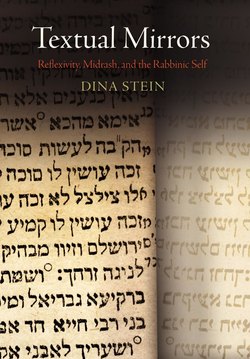Textual Mirrors

Реклама. ООО «ЛитРес», ИНН: 7719571260.
Оглавление
Dina Stein. Textual Mirrors
Отрывок из книги
Textual Mirrors
LATE ANCIENT RELIGION
.....
This rendering offers the reflective scene but one stripped of its midrashic component. Not only is there no underlying exegetical framework for this tale, as there is in the Tanḥuma, but when providing a rationale for later hiding his wife, Abram does not cite scriptural verses. He simply states that “there is no fear of God in their place.” Here, the reflective moment is translated immediately into the divine. Sarai’s beauty points to God’s Creation, and it is the Egyptian’s lack of “fear of God” that will endanger him. In this rendering, the reflection in the river does not lead to self-reflection but still serves as an animating force that determines the ensuing action. But Abram, immediately upon recognizing Sarai’s beauty, ascribes it to divine Creation. In doing so, he divests responsibility from himself and hands it over to God. He therefore states his fear of the Egyptians in theological terms.51 I would suggest that the lack of self-reflection on Abram’s part, the suppression of Eros, is also tied up with the lack of self-reflexivity of the text: in the Tanḥuma text, the verse from Ezekiel makes “lust” (projected onto the Egyptians) an explicit theme of the tale. More important, it is not only part of Abram’s self-reflective moment; it is a moment of textual self-reflexivity, thus associating the portrayal of the human subject and the discourse that constructs him.
Of course, the two examples—one predating rabbinic textual practices and the other attesting to new forms of medieval or Renaissance Hebrew fiction—deserve to be appreciated for their own poetic merits (and maybe even for their own aspects of self-reflexivity). In this context, however, they clearly underline the heightened mode of self-reflexivity that I ascribe to midrash as a generative force in rabbinic texts, resulting, in the Tanḥuma text, in a self-reflective protagonist.
.....